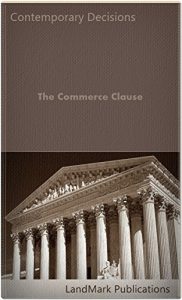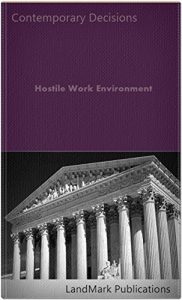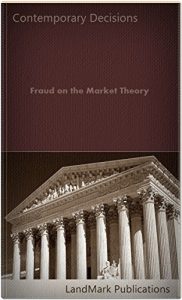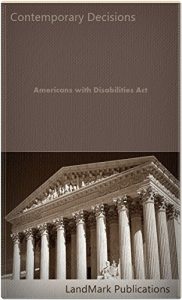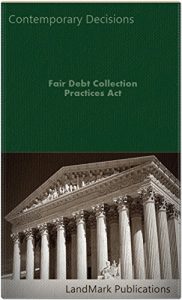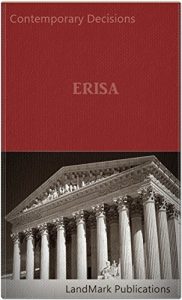THIS CASEBOOK contains a selection of 208 U. S. Court of Appeals decisions that analyze, interpret and discuss Commerce Clause doctrine. The selection of decisions spans from 2006 to the date of publication.
The Commerce Clause gives Congress the power "[t]o regulate Commerce . . . among the several States." U.S. Const. art. I, § 8, cl. 3. Although by its terms the clause speaks only of congressional authority, "the [Supreme] Court long has recognized that it also limits the power of the States to erect barriers against interstate trade." Dennis v. Higgins, 498 U.S. 439, 446, 111 S.Ct. 865, 112 L.Ed.2d 969 (1991) (quoting Lewis v. BT Inv. Managers, Inc., 447 U.S. 27, 35, 100 S.Ct. 2009, 64 L.Ed.2d 702 (1980)). This implicit or "dormant" constraint is driven primarily by concerns over "economic protectionism—that is, regulatory measures designed to benefit in-state economic interests by burdening out-of-state competitors." New Energy Co. of Ind. v. Limbach, 486 U.S. 269, 273-74, 108 S.Ct. 1803, 100 L.Ed.2d 302 (1988). Colon Health Centers of America, LLC v. Hazel, 813 F. 3d 145 (4th Cir. 2016).
To that end, the Supreme Court has instructed that "[t]he principal objects of dormant Commerce Clause scrutiny are statutes that discriminate against interstate commerce." CTS Corp. v. Dynamics Corp. of Am., 481 U.S. 69, 87, 107 S.Ct. 1637, 95 L.Ed.2d 67 (1987) (emphasis added). "[W]hen a state statute [] discriminates against interstate commerce, it will be struck down unless the discrimination is demonstrably justified by a valid factor unrelated to economic protectionism." Yamaha Motor Corp. v. Jim's Motorcycle, Inc., 401 F.3d 560, 567 (4th Cir.2005) (quoting Wyoming v. Oklahoma, 502 U.S. 437, 454, 112 S.Ct. 789, 117 L.Ed.2d 1 (1992)). While discrimination "simply means differential treatment of in-state and out-of-state economic interests that benefits the former and burdens the latter," Or. Waste Sys., Inc. v. Dep't of Envtl. Quality of State of Or., 511 U.S. 93, 99, 114 S.Ct. 1345, 128 L.Ed.2d 13 (1994), not all economic harms or anticompetitive choices can or should be remedied through application of the dormant Commerce Clause. See Brown v. Hovatter, 561 F.3d 357, 363 (4th Cir.2009). Under the prevailing framework courts must chart a narrow course between "rebuff[ing] attempts of states to advance their own commercial interests by curtailing the movement of articles of commerce . . . [and] generally supporting their right to impose even burdensome regulations in the interest of local health and safety." H.P. Hood & Sons, Inc. v. Du Mond, 336 U.S. 525, 535, 69 S.Ct. 657, 93 L.Ed. 865 (1949). Colon Health Centers of America, LLC v. Hazel, ibid.
The Commerce Clause gives Congress the power "[t]o regulate Commerce . . . among the several States." U.S. Const. art. I, § 8, cl. 3. Although by its terms the clause speaks only of congressional authority, "the [Supreme] Court long has recognized that it also limits the power of the States to erect barriers against interstate trade." Dennis v. Higgins, 498 U.S. 439, 446, 111 S.Ct. 865, 112 L.Ed.2d 969 (1991) (quoting Lewis v. BT Inv. Managers, Inc., 447 U.S. 27, 35, 100 S.Ct. 2009, 64 L.Ed.2d 702 (1980)). This implicit or "dormant" constraint is driven primarily by concerns over "economic protectionism—that is, regulatory measures designed to benefit in-state economic interests by burdening out-of-state competitors." New Energy Co. of Ind. v. Limbach, 486 U.S. 269, 273-74, 108 S.Ct. 1803, 100 L.Ed.2d 302 (1988). Colon Health Centers of America, LLC v. Hazel, 813 F. 3d 145 (4th Cir. 2016).
To that end, the Supreme Court has instructed that "[t]he principal objects of dormant Commerce Clause scrutiny are statutes that discriminate against interstate commerce." CTS Corp. v. Dynamics Corp. of Am., 481 U.S. 69, 87, 107 S.Ct. 1637, 95 L.Ed.2d 67 (1987) (emphasis added). "[W]hen a state statute [] discriminates against interstate commerce, it will be struck down unless the discrimination is demonstrably justified by a valid factor unrelated to economic protectionism." Yamaha Motor Corp. v. Jim's Motorcycle, Inc., 401 F.3d 560, 567 (4th Cir.2005) (quoting Wyoming v. Oklahoma, 502 U.S. 437, 454, 112 S.Ct. 789, 117 L.Ed.2d 1 (1992)). While discrimination "simply means differential treatment of in-state and out-of-state economic interests that benefits the former and burdens the latter," Or. Waste Sys., Inc. v. Dep't of Envtl. Quality of State of Or., 511 U.S. 93, 99, 114 S.Ct. 1345, 128 L.Ed.2d 13 (1994), not all economic harms or anticompetitive choices can or should be remedied through application of the dormant Commerce Clause. See Brown v. Hovatter, 561 F.3d 357, 363 (4th Cir.2009). Under the prevailing framework courts must chart a narrow course between "rebuff[ing] attempts of states to advance their own commercial interests by curtailing the movement of articles of commerce . . . [and] generally supporting their right to impose even burdensome regulations in the interest of local health and safety." H.P. Hood & Sons, Inc. v. Du Mond, 336 U.S. 525, 535, 69 S.Ct. 657, 93 L.Ed. 865 (1949). Colon Health Centers of America, LLC v. Hazel, ibid.
